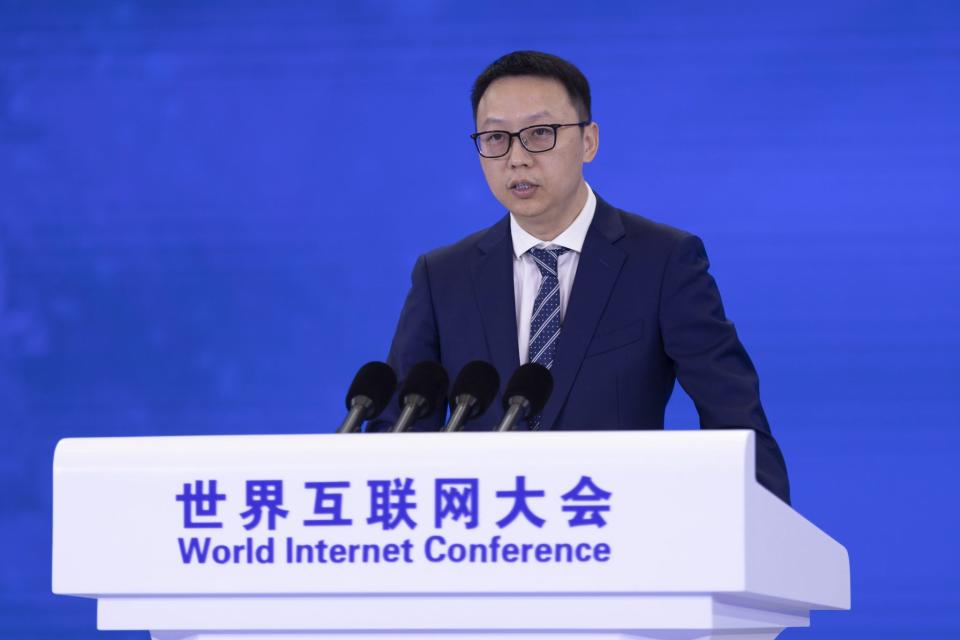Alibaba is replacing its e-commerce head as it tries to beat back Pinduoduo and Temu owner PDD

Alibaba is having a tough year. The company is losing ground to cheaper competitors as China’s consumers flock to cheaper and better-valued products amid the country’s sluggish economy. U.S. export restrictions are weighing on Alibaba’s moneymaking cloud computing division. And Alibaba’s fintech affiliate, Ant Group, paid an almost $1 billion fine to Chinese regulators over the summer.
Now, Alibaba is reshuffling its leadership, moving its e-commerce head to another position. Group CEO Eddie Wu, one of Alibaba’s founding members, is taking over leadership of Taobao and Tmall Group (TTG), the company’s two e-commerce platforms. Wu is replacing Trudy Dai, who became CEO of TTG in March after Alibaba reorganized into six business units. Prior to the split, Dai was president of Alibaba’s core domestic e-commerce. She will now help with the establishment of a new asset management company for the Alibaba Group.
In announcing the leadership change, Alibaba chairman Joe Tsai called for a “brand-new strategy” for the Chinese tech company, in an internal letter seen by Fortune. “We are embarking on a journey to rediscover our entrepreneurial spirit together,” he wrote.
Wu also became CEO of Alibaba’s cloud computing division in September, and so now has direct responsibility for the company’s major revenue drivers.
“Eddie’s leadership of both Alibaba Cloud and the Taobao and Tmall Group will ensure total focus on, and significant and sustained investment in our two core businesses of cloud computing and e-commerce,” Tsai wrote in his internal letter.
Alibaba is not the only company shaking up its e-commerce lineup. In mid-November, Alibaba rival JD.com removed the head of its retail division, putting the unit under the direct control of CEO Sandy Xu Ran.
Alibaba’s troubles
Alibaba has dominated China’s tech and e-commerce sectors for years, but the company has recently struggled to bounce back from Beijing’s regulatory crackdown and a sluggish economy. The company also faces new competition from rival e-commerce platform Pinduoduo, which offers lower prices than Alibaba and JD.
Investors are now paying closer attention to PDD Holdings, the owner of Pinduoduo and U.S.-based shopping platform Temu. PDD reported 94% year-on-year revenue growth in the most recent quarter, and its shares have surged by over 75% this year, compared with an 18% decline for Alibaba over the same period. One fan of PDD: Alibaba founder Jack Ma, who offered congratulations to his e-commerce rival in an internal discussion forum, while calling on employees to help Alibaba “correct its course.”
Earlier this year, the company announced that it would transform itself into a holding company and pursue listings of six individual business divisions. The company filed for a Hong Kong IPO of Cainiao, its logistics division, in September.
But the reorganization plan has also run into stumbling blocks. In November, Alibaba abandoned a plan to spin off its cloud computing division, which generates 12% of its quarterly revenue, as a wholly independent company. Alibaba blamed U.S. export controls barring sales of high-end chips to China, claiming that expanded restrictions would affect the unit’s ability to offer services and fulfill existing contracts.
Alibaba shares rose 2.7% in Hong Kong trading on Wednesday, following the announcement of the reshuffle.
Correction, Dec. 20, 2023: This article has been updated to better reflect Trudy Dai’s leadership tenure at Alibaba’s e-commerce units.
This story was originally featured on Fortune.com

 Yahoo Finance
Yahoo Finance 